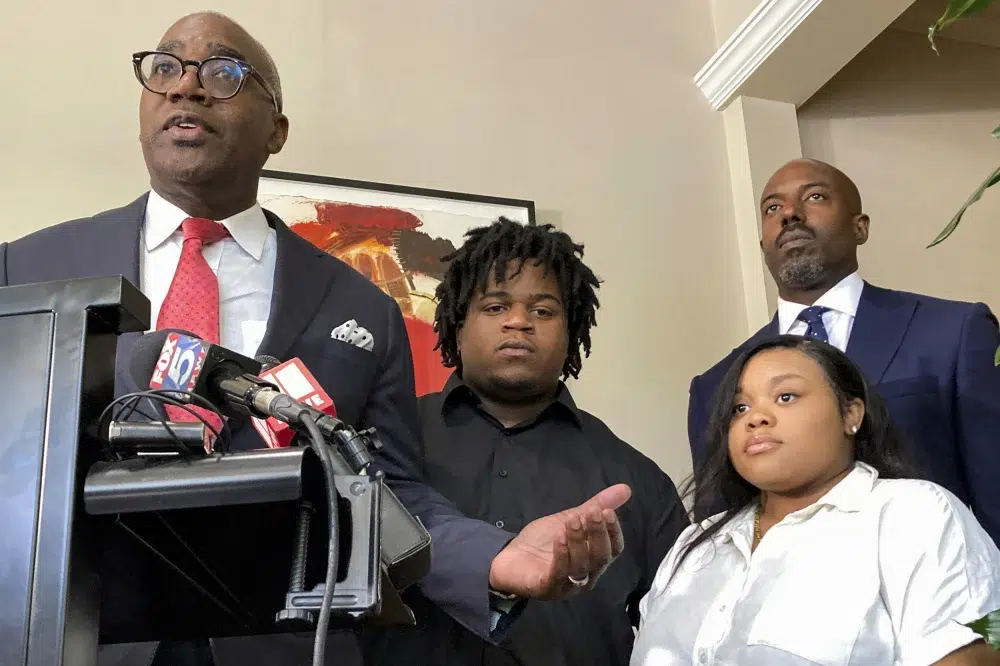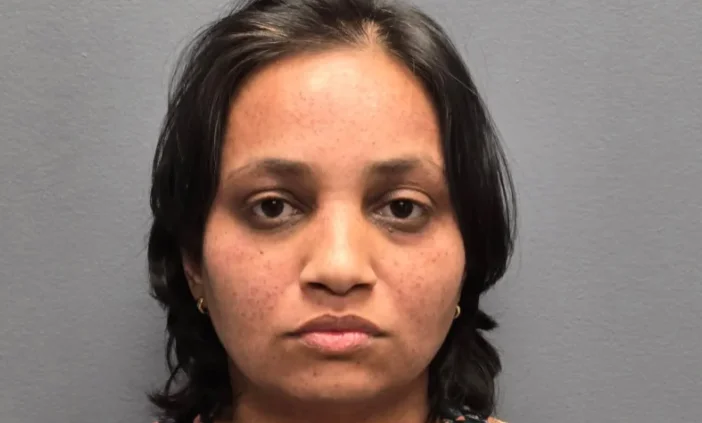A Tragedy Compounded by Betrayal
In June 2025, a Fulton County, Georgia jury awarded $2.25 million in damages to the parents of a baby who was decapitated during delivery and whose autopsy was posted on social media without their consent. The case of Baby Isaiah has shocked the nation, not only because of the traumatic delivery that cost the infant his life, but because of what happened afterward; a physician’s unconscionable decision to share graphic autopsy footage on his public Instagram account.
The Parents at the Center
Jessica Ross and Treveon Taylor Sr., a couple from Clayton County, Georgia, experienced every parent’s worst nightmare during what should have been one of life’s most joyous moments. Their son Isaiah died during a delivery complication that resulted in his decapitation. The unimaginable trauma of losing their child in such a horrific manner was only the beginning of their nightmare.
The Doctor Who Crossed Every Line
The lawsuit accused Dr. Jackson Gates of invasion of privacy, emotional distress, and fraud; the jury ultimately awarded $2 million in compensatory damages and $250,000 in punitive damages. Dr. Gates, who operated an autopsy practice called Medical Diagnostic Choices in Atlanta, was hired to perform the postmortem examination of Baby Isaiah. What he did with that responsibility represents one of the most egregious violations of medical ethics and human decency in recent memory.
When Education Becomes Exploitation

Gates maintained that he posted the videos for educational purposes. This defense highlights a disturbing trend in medical social media where the line between education and exploitation becomes dangerously blurred. On July 14, Gates uploaded a video to his Instagram account that showed “in graphic and grisly detail a postmortem examination of the decapitated, severed head of Baby Isaiah”. No educational purpose justifies displaying someone’s deceased child on social media without consent.
The Content That Caused Unimaginable Pain
Days later, two more videos from the newborn’s autopsy were published to Gates’ Instagram page that included “the autopsy of the chest cavity of the child and the cranial cavity of the child“. Gates allegedly shared photos and videos of the child’s full face and internal organs on Instagram without the couple’s consent. Jessica Ross’s words capture the horror of this violation: “My baby was on Instagram. Dr. Gates posted pictures of my baby”.
The Legal Battle That Followed
Ross and Taylor filed their lawsuit on September 1, 2023, in state court in Fulton County, alleging that Gates’ posting caused them severe emotional distress. A Fulton County judge ruled that Gates and his company are liable for intentional infliction of emotional distress, invasion of privacy, and fraud. The three;day trial in June 2025 resulted in the substantial damages award that attempts to compensate the family for violations that no amount of money can truly address.
The Broader Issue of Medical Social Media
Gates’ actions represent an extreme example of a growing problem: medical professionals using patient cases for social media content without proper consent or consideration of ethical boundaries. While medical education has always involved case studies and visual documentation, social media has created new dynamics where the line between education and entertainment becomes dangerously thin. The pursuit of followers, engagement, and visibility can override professional judgment and basic human decency.
Privacy in Death
This case raises critical questions about privacy rights after death. Most people understand that medical privacy laws protect living patients, but fewer realize that dignity and privacy should extend beyond life. Families grieving the loss of loved ones should not have to worry about graphic images of their deceased family members appearing on social media feeds. The fact that this had to be litigated; that Gates apparently saw nothing wrong with his actions; reveals how far some medical professionals have strayed from basic ethical principles.
The Impact on Grieving Parents
Imagine losing your child in a traumatic delivery, then weeks later discovering graphic images of your baby’s autopsy circulating on Instagram. The compound trauma is almost incomprehensible. Ross and Taylor were already processing unimaginable grief; Gates’ actions added another layer of violation and suffering. They had to relive their son’s death through the lens of strangers viewing and commenting on images that should have remained private and dignified.
Medical Ethics in the Digital Age
The medical profession has ethical codes that predate social media by centuries, yet the fundamental principles remain relevant: do no harm, respect patient dignity, maintain confidentiality. Gates violated all of these principles. His defense that the content was educational rings hollow when weighed against the harm inflicted on a grieving family. Medical education has existed for generations without requiring physicians to post graphic autopsy images on public social media accounts.
The Separate Delivery Lawsuit
The parents also filed a separate lawsuit against the hospital and medical staff regarding the circumstances of the delivery itself. While that case addresses the tragic events that led to Baby Isaiah’s death, the lawsuit against Gates focuses on the violation that occurred afterward. Both cases represent different failures within the medical system; one of competent care during delivery, the other of basic human decency and professional ethics.
Why Default Judgment Was Necessary
The judgment was issued after Gates failed to respond to the lawsuit. His failure to even defend his actions in court suggests either complete disregard for the legal process or an inability to mount any reasonable defense for behavior that defies justification. The default judgment simplified the legal proceedings but also meant Gates never had to formally account for why he thought his actions were acceptable.
Social Media’s Role in Dehumanization
This case illustrates how social media can facilitate dehumanization. Baby Isaiah became content; material for a post designed to attract attention and engagement. His humanity, his parents’ grief, and basic respect for the dead all became secondary to whatever goals Gates had for his Instagram account. The platform that connects billions of people also creates psychological distance that allows users to forget there are real people behind every image, every story, every case.
The Inadequacy of Monetary Compensation
The $2.25 million award represents the court’s attempt to compensate Ross and Taylor for emotional distress, invasion of privacy, and fraud. But how do you put a price on having your deceased infant’s autopsy displayed to strangers? How do you calculate damages for that level of violation? The money might provide some measure of justice, but it cannot undo the harm, cannot remove those images from the internet, cannot erase the memory of discovering their baby on Instagram.
Precedent and Prevention
This case establishes important legal precedent about privacy rights, consent, and the boundaries of medical social media. It sends a message to other medical professionals who might consider posting patient information; living or deceased; without proper consent. The substantial damages award suggests courts will take these violations seriously. Whether it prevents future incidents depends on whether medical professionals are paying attention and whether their ethics will prevail over the pursuit of social media engagement.
The Education Defense Falls Short
Medical education is vital. Visual documentation serves important purposes in training future healthcare providers. But educational goals can be achieved without violating privacy, without displaying identifiable remains on public social media, without causing additional trauma to grieving families. Gates had numerous alternatives if education was truly his goal; anonymized case studies, presentations in professional settings, publications in medical journals. He chose instead the path that maximized public visibility at the cost of basic human decency.
Where Regulation and Ethics Failed
This case exposes failures at multiple levels. Social media platforms have inadequate policies preventing graphic medical content from being posted. Professional medical organizations apparently haven’t adequately addressed the ethics of medical social media. Individual practitioners like Gates operate without sufficient understanding of or regard for boundaries. The regulatory and ethical frameworks that should prevent such violations are clearly insufficient for the digital age.
The Family’s Ongoing Pain
While the legal case has concluded, Ross and Taylor’s pain continues. They must live with the loss of their son, the trauma of how he died, and the added violation of how his death was exploited. The verdict provides some measure of justice but cannot restore what was taken from them. Their courage in pursuing this lawsuit may prevent other families from experiencing similar violations, but that knowledge likely provides cold comfort as they grieve their son.
A Call for Change
The Baby Isaiah case should prompt serious examination of how medical professionals use social media, how platforms regulate medical content, and how privacy rights are protected in death as in life. It should lead medical schools to address social media ethics explicitly in their curricula. It should cause professional organizations to develop clear guidelines about what constitutes appropriate medical content sharing. And it should remind all healthcare providers that behind every case, every image, every “educational opportunity” are real people deserving of dignity, respect, and privacy; in life and in death.
Remembering Baby Isaiah
In all the discussion of legal proceedings, ethical violations, and social media failures, Baby Isaiah himself must not be forgotten. He was a real child, loved and wanted by his parents, whose brief life ended in tragedy. His memory deserves better than becoming a cautionary tale about medical ethics and social media. Ross and Taylor lost their son; that loss is the true tragedy here. Everything that followed; the violation, the lawsuit, the verdict; stems from that fundamental loss. May Baby Isaiah rest in peace and may his story prevent other families from experiencing similar violations in their darkest moments.






.jpg)
